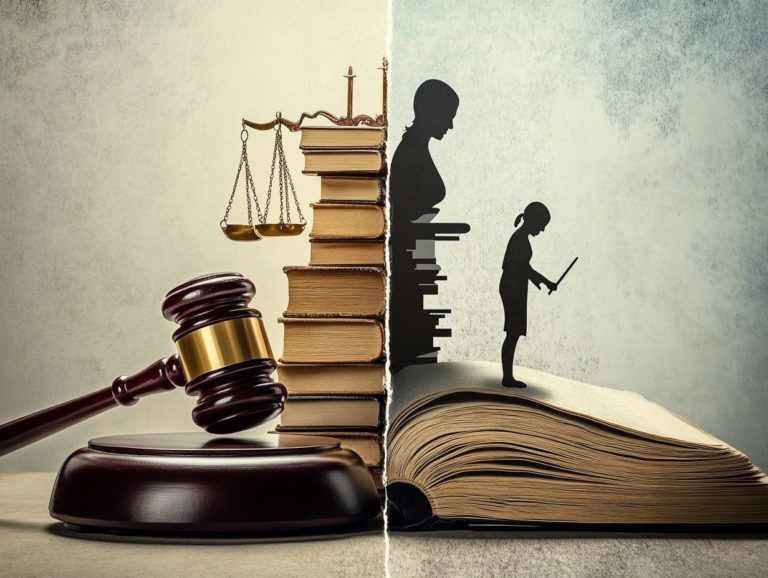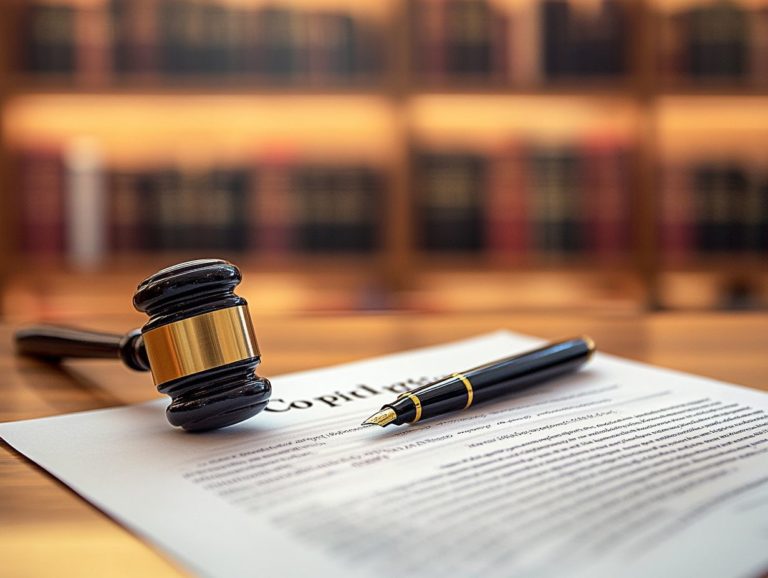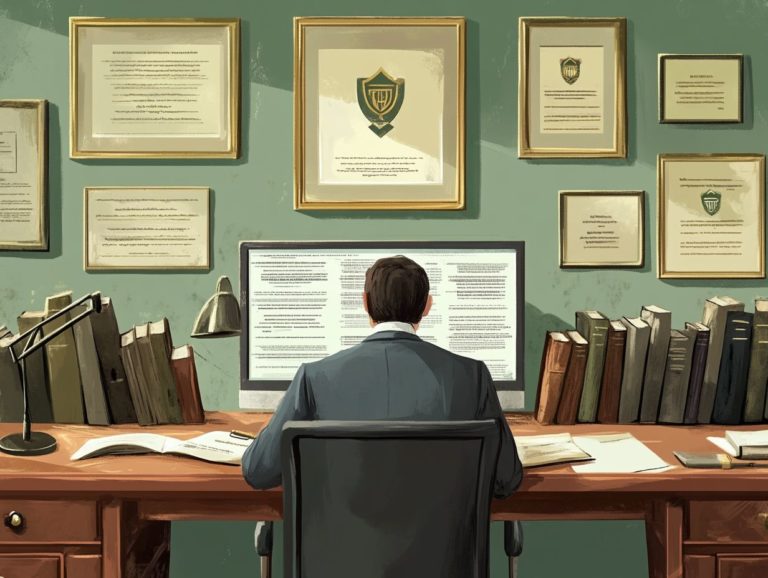The Challenges of Copyright in the Digital Marketplace
In today s fast-paced digital landscape, copyright has become an essential yet intricate issue. As technology simplifies the reproduction and sharing of content, protecting intellectual property presents significant challenges.
This article delves into the essence of copyright, highlighting the hurdles you face in safeguarding your work and the repercussions of using someone else’s work without permission. It will also explore innovative solutions and future trends that have the potential to reshape copyright laws.
Join in as you tackle the challenges of today’s digital world, unraveling its nuances and implications!
Contents
- Key Takeaways:
- Understanding Copyright in the Digital Marketplace
- Challenges of Protecting Copyright in the Digital Age
- Impacts of Copyright Infringement
- Solutions for Protecting Copyright in the Digital Marketplace
- The Future of Copyright in the Digital Age
- Frequently Asked Questions
- What are the main challenges of copyright in the digital marketplace?
- How does the ease of digital reproduction and distribution affect copyright?
- Why is it difficult to identify and track ownership in the digital marketplace?
- What role do regulations and enforcement play in copyright challenges?
- How does the digital marketplace impact the revenue of creators and copyright holders?
- What are some potential solutions to the challenges of copyright in the digital marketplace?
Key Takeaways:
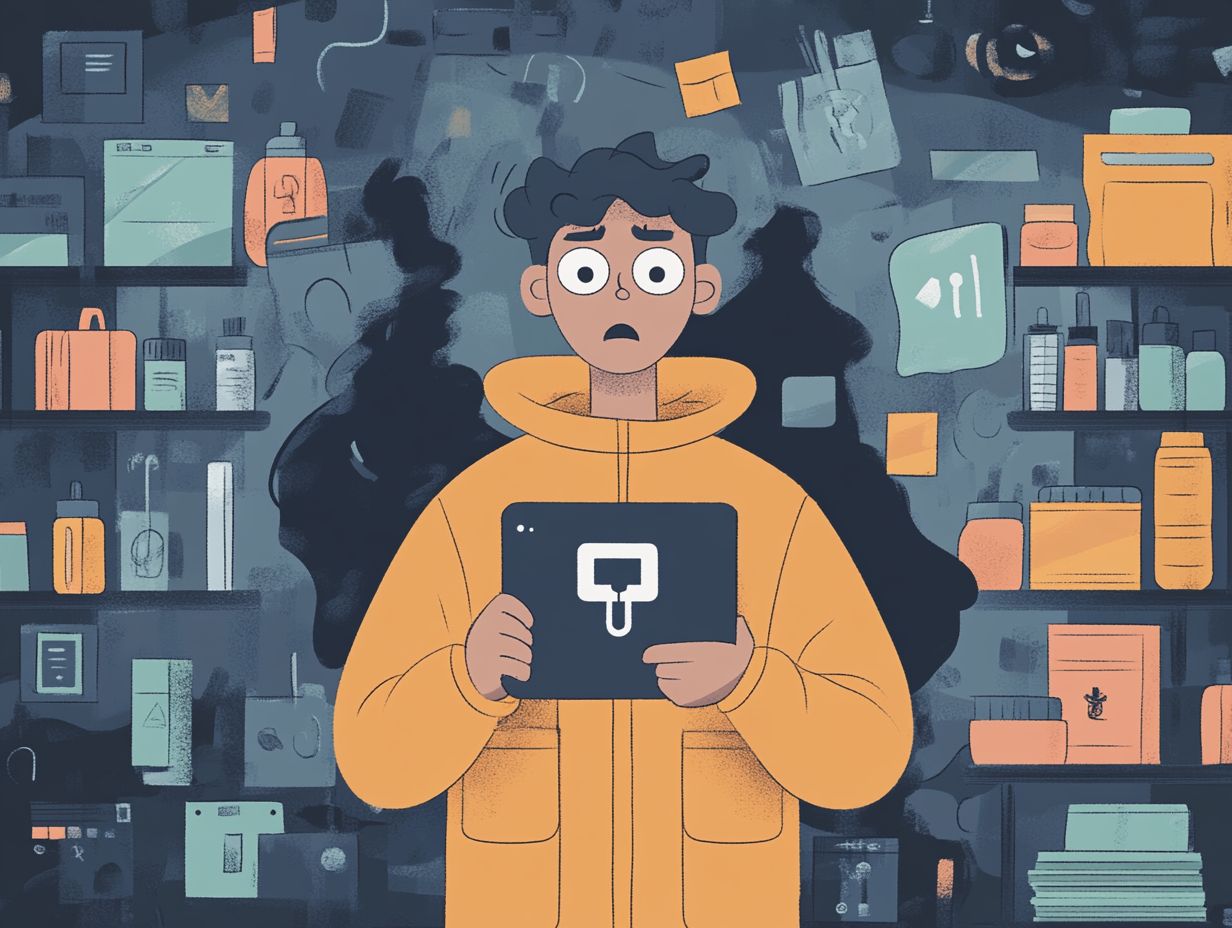
Copyright is essential in protecting the rights of creators and their works in the digital marketplace. The digital age has made it easier for copyrighted material to be reproduced and distributed, posing challenges for protection and regulation. Understanding the future of copyright in an international context is crucial, as infringement of copyright can result in significant financial losses and legal consequences.
Understanding Copyright in the Digital Marketplace
In the fast-paced digital marketplace, grasping the nuances of copyright is essential for you, whether you’re a content creator or a copyright holder.
Copyright is the law that protects your original works in today’s digital world. It serves as a cornerstone for respecting intellectual property rights, giving you the power to unleash your creativity without the looming anxiety of copyright infringement.
With more internet platforms emerging, the definitions and implications of copyright have grown increasingly intricate. It s vital for you to have a solid understanding of digital rights and the tools available for monitoring copyright usage.
Defining Copyright and its Importance
Copyright serves as a robust legal framework that protects original works of authorship, ensuring you retain ownership rights over your artistic endeavors and intellectual property. This system spans various forms of creativity, including literature, music, visual arts, and software. It establishes exclusive rights for you as an author to reproduce, distribute, and publicly display your works.
By safeguarding these rights, copyright laws not only incentivize your innovation but also cultivate a vibrant cultural landscape where you can thrive without the anxiety of unauthorized use of your creations.
For instance, as a musician, you can rely on copyright to prevent unauthorized sampling of your songs. As an author, you can secure your narrative from being replicated without your permission.
In the tech realm, software developers like you benefit from copyright protection, ensuring that your original programs remain unique and allowing for a fair return on your investment of time and resources.
Challenges of Protecting Copyright in the Digital Age
As you deal with the challenges of the digital world, you’ll find that protecting copyright has become increasingly intricate.
The ease of online distribution and widespread software piracy can lead to significant copyright infringement, putting your creative works at risk.
Ease of Digital Reproduction and Distribution
The digital age has transformed the reproduction and distribution of content into a seamless process. This heightens concerns around copyright infringement for content creators and copyright holders alike.
With platforms like YouTube enabling you to upload and share videos in an instant, this landscape is a double-edged sword. It sparks creativity and amplifies voices, yet it also makes it alarmingly easy for someone to misuse another s work without authorization.
For instance, imagine a song featured in a viral video amassing millions of views, while the original artist remains in the shadows, receiving little to no recognition or compensation. Streaming services like Netflix encounter their own challenges as well. When shows are shared or recorded illegally, it raises critical questions about content ownership and fair use.
These copyright challenges are shaking up the foundations of digital media, forcing you to navigate a landscape fraught with legal uncertainties related to the challenges of IP law in the age of globalization.
Lack of Clear Regulations and Enforcement
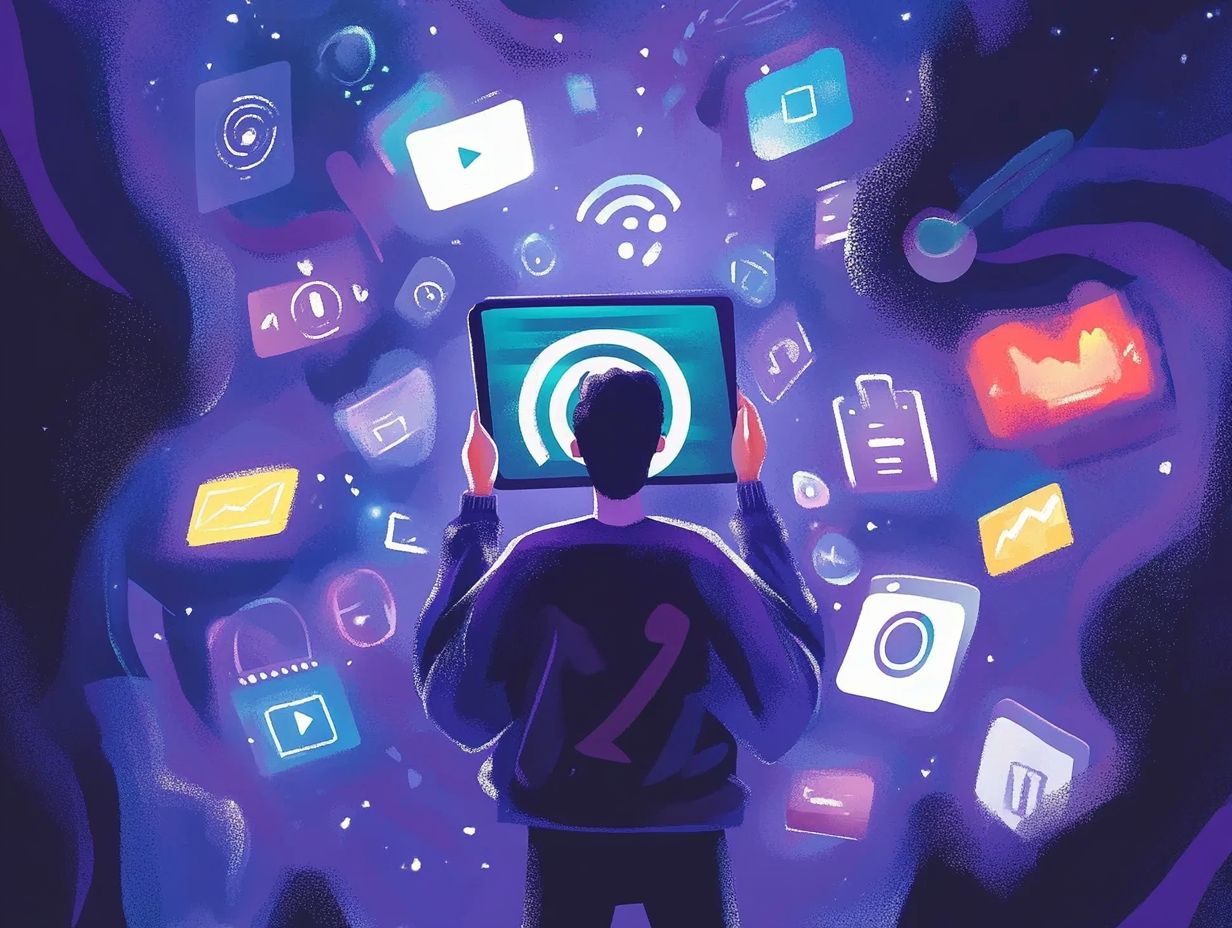
One of the significant challenges in safeguarding copyright is the lack of clear regulations and effective enforcement mechanisms amid the rapidly changing digital landscape. Understanding the evolution of copyright in the Internet era can help clarify this ambiguity, which often leaves copyright holders vulnerable as they navigate a complex web of legal interpretations that differ by jurisdiction.
Many individuals find their intellectual property exploited without sufficient recourse. Existing laws that prevent people from bypassing copyright protections frequently struggle to keep pace with emerging technologies.
This disconnect demands immediate reforms to protect creators like you! By addressing these gaps, you can help create a fairer environment for creators, ensuring that their rights are respected and upheld in an increasingly interconnected world.
Impacts of Copyright Infringement
Copyright infringement has profound implications, causing substantial revenue loss for creators while also triggering intricate litigation that can jeopardize the careers of artists and content creators alike.
Financial Losses and Legal Consequences
The financial repercussions of copyright infringement can be staggering for copyright holders. They frequently result in costly litigation and a reduction in the market value of creative contributions.
Consider the high-profile legal clash between Oracle and Google over the use of Java in Android. This case not only racked up astronomical legal fees reportedly surpassing $9 billion but also cast a pall over innovation and collaborations within the tech sector.
Musicians have also faced significant hurdles. Ongoing disputes regarding sampling rights place financial pressure on both artists and record labels, highlighting that copyright infringement doesn’t just impact individual creators; it also stifles the broader market for original works.
As businesses grow increasingly cautious about embarking on projects that could lead to legal complications, creativity becomes more constrained.
Solutions for Protecting Copyright in the Digital Marketplace
In the battle against copyright infringement, a smart mix of technology and legal solutions is key to safeguarding your intellectual property in the ever-evolving digital marketplace.
Technological Solutions
Technological solutions, such as AI copyright detection and blockchain copyright, have emerged as formidable allies in the quest for copyright protection. These tools empower you to efficiently monitor content and significantly reduce instances of infringement.
These innovations streamline the identification of unauthorized use and ensure clear ownership through transparent and immutable records. Imagine AI algorithms sifting through vast databases of content, comparing new uploads against established works to pinpoint potential violations in the blink of an eye. Platforms like YouTube utilize these technologies to automatically flag infringing videos, enabling creators like you to protect your rights with confidence.
Similarly, blockchain is a secure digital ledger that records information transparently. This allows artists to establish provenance and receive automated royalties seamlessly.
By embracing these advanced technologies, you can fortify your intellectual property against threats in an ever-evolving digital landscape.
Legal Solutions
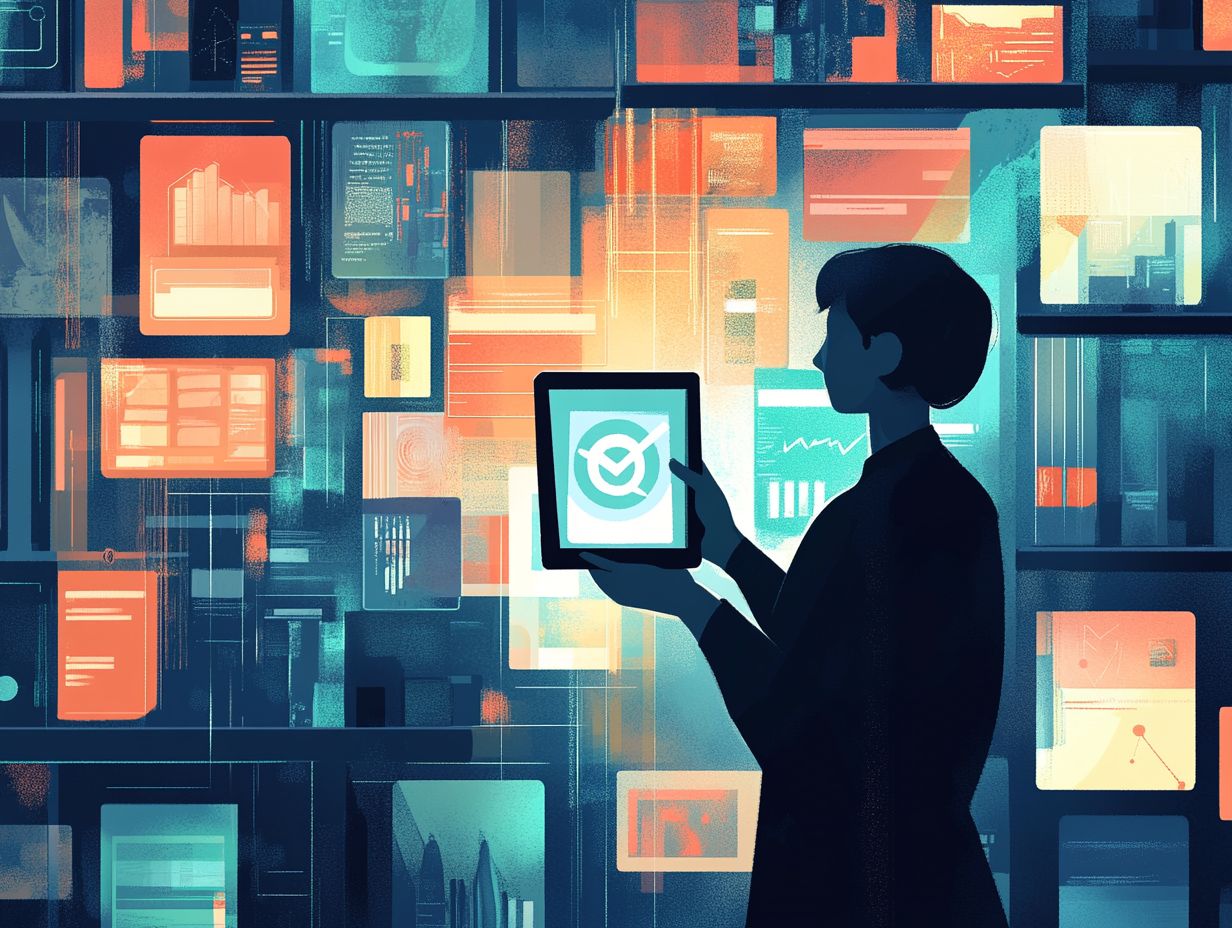
Legal solutions are crucial for copyright protection. They require strong copyright laws and educational campaigns to effectively tackle infringement.
These frameworks empower you as a creator to protect your original works. They also create an environment that discourages unauthorized use.
When you collaborate with platforms, you help foster a culture of respect for intellectual property. This ultimately benefits you and the platform.
Educational initiatives boost this protective stance. They inform the public about the importance of copyright compliance and the consequences of infringement.
By raising awareness, society can better appreciate the value of creative endeavors. This ensures you and other artists get the recognition and compensation you deserve.
The Future of Copyright in the Digital Age
The future of copyright is transforming rapidly. Emerging technologies and the need for global collaboration are driving this change.
Adapting copyright compliance to the changing digital landscape is essential. It s not just advantageous; it s necessary for survival.
Predictions and Potential Changes
As the digital landscape changes, expect significant shifts in copyright compliance. Advancements in technology and shifts in digital rights management will lead this evolution.
These developments will reshape how you protect your intellectual property. They will create a more dynamic interaction between you, your audience, and the platforms you use.
Imagine smart contracts using blockchain technology. These could allow real-time licensing agreements, meaning you receive instant compensation whenever your work is used.
AI tools may automate monitoring processes. This will help you spot unauthorized use of your content more effectively.
This evolution promises not just enhanced compliance but also complex questions about ownership and attribution. Lawmakers may need to revisit existing copyright frameworks for everyone’s benefit.
Frequently Asked Questions
What are the main challenges of copyright in the digital marketplace?
The main challenges include the ease of digital reproduction and distribution. Understanding the role of copyright in digital content is essential, as it is also hard to identify and track ownership, and there are often unclear regulations and enforcement.
How does the ease of digital reproduction and distribution affect copyright?
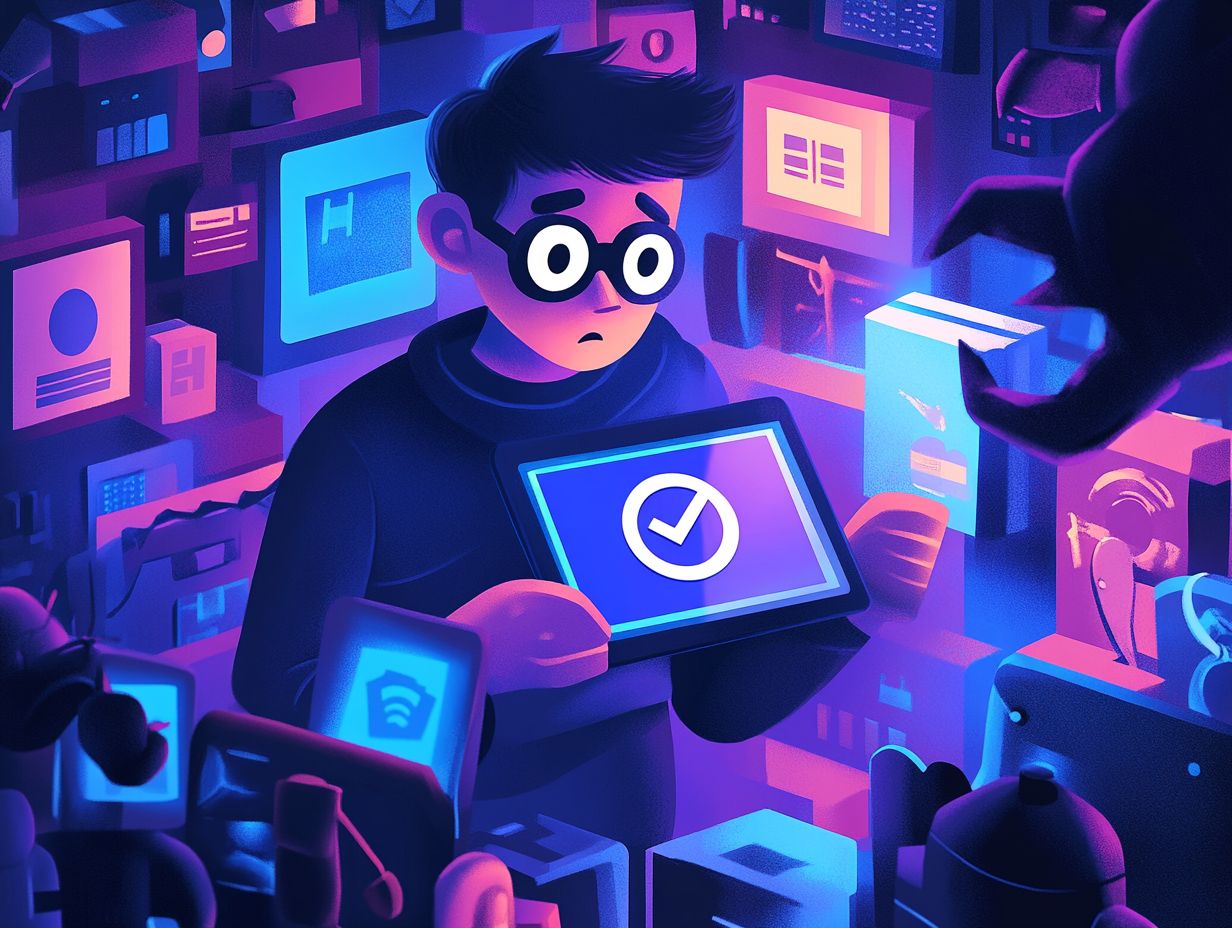
Digital reproduction makes it easy for people to share copyrighted material without permission. This has led to increased online piracy and significant revenue loss for creators.
Why is it difficult to identify and track ownership in the digital marketplace?
Identifying ownership is tough due to the ease of copying and sharing digital content. Additionally, inconsistent metadata standards make it hard for creators to prove ownership.
What role do regulations and enforcement play in copyright challenges?
Clear regulations and effective enforcement are essential for copyright protection. Without them, preventing infringement and holding individuals accountable becomes difficult.
How does the digital marketplace impact the revenue of creators and copyright holders?
The digital marketplace can significantly influence the revenue of creators and copyright holders. It offers a global platform for sharing and selling their work.
However, easy digital reproduction and distribution can threaten revenue. Protecting and controlling distribution becomes more difficult in this environment.
What are some potential solutions to the challenges of copyright in the digital marketplace?
To tackle copyright challenges, stronger rules and enforcement are essential. Better technology can help track and protect digital content.
Education is key; the public must understand the importance of respecting ownership of creative work. Creators can also use tools to manage rights and set up licensing agreements for extra protection.

